- Home
- Frank Herbert
Frank Herbert - Dune Book 5 - Heretics of Dune Page 7
Frank Herbert - Dune Book 5 - Heretics of Dune Read online
Page 7
"Not dangerous to us," he said.
"A matter of opinion," Mirlat said.
"Then let us consider opinions," Waff said. "Have we a need to fear Ix or the Fish Speakers? Indeed not. They are ours, although they do not know it."
Waff let this sink in; all of them knew that new Face Dancers sat in the highest councils of Ix and Fish Speakers, the exchange undetected.
"The Guild will not move against us or oppose us because we are their only secure source of melange," Waff said.
"Then what of these Honored Matres returned from the Scattering?" Mirlat demanded.
"We will deal with them when it is required of us," Waff said. "And we will be helped by the descendants of our own people who voluntarily went out into the Scattering."
"The time does appear opportune," one of the other councillors murmured.
It was Torg the Younger who had spoken, Waff observed. Good. There was a vote secured.
"The Bene Gesserit!" Mirlat snapped.
"I think the Honored Matres will remove the witches from our path," Waff said. "Already they growl against each other like animals in the fighting pit."
"What if the author of that manifesto is identified?" Mirlat demanded. "What then?"
Several heads nodded among the councillors. Waff marked them: people to be won over.
"It is dangerous to be called Atreides in this age," he said.
"Except perhaps on Gammu," Mirlat said. "And the name Atreides has been signed to that document!"
How odd, Waff thought. The CHOAM representative at the powindah conference that had taken Waff away from the inner planets of Tleilax had emphasized that very point. But most of CHOAM's people were secret atheists who looked on all religion as suspect, and certainly the Atreides had been a potent religious force. CHOAM worries had been almost palpable.
Waff recounted this CHOAM reaction now.
"This CHOAM hireling, damn his Godless soul, is right," Mirlat insisted. "The document's insidious."
Mirlat will have to be dealt with, Waff thought. He lifted the manifesto from his lap and read the first line aloud:
"In the beginning was the word and the word was God."
"Directly from the Orange Catholic Bible," Mirlat said. Once more, heads nodded in worried agreement.
Waff showed the points of his canines in a brief smile. "Do you suggest that there are those among the powindah who suspect the existence of the Shariat and the Masheikhs?"
It felt good to speak these words openly, reminding his listeners that only here among the innermost Tleilaxu were the old words and the old language preserved without change. Did Mirlat or any of the others fear that Atreides words could subvert the Shariat?
Waff posed this question, too, and saw the worried frowns.
"Is there one among you," Waff asked, "who believes that a single powindah knows how we use the language of God?"
There! Let them think on that! Every one of them here had been wakened time after time in ghola flesh. There was a fleshly continuity in this Council that no other people had ever achieved. Mirlat himself had seen the Prophet with his own eyes. Scytale had spoken to Muad'dib! Learning how the flesh could be renewed and the memories restored, they had condensed this power into a single government whose potency was confined lest it be demanded everywhere. Only the witches had a similar storehouse of experience upon which to draw and they moved with fearful caution, terrified that they might produce another Kwisatz Haderach!
Waff said these things to his councillors, adding: "The time for action has come."
When no one spoke disagreement, Waff said: "This manifesto has a single author. Every analysis agrees. Mirlat?"
"Written by one person and that person a true Atreides, no doubt of it," Mirlat agreed.
"All at the powindah conference affirmed this," Waff said. "Even a third-stage Guild steersman agrees."
"But that one person has produced a thing that excites violent reactions among diverse peoples," Mirlat argued.
"Have we ever questioned the Atreides talent for disruption?" Waff asked. "When the powindah showed me this document I knew God had sent us a signal."
"Do the witches still deny authorship?" Torg the Younger asked.
How alertly apt he is, Waff thought.
"Every powindah religion is called into question by this manifesto," Waff said. "Every faith except ours is left hanging in limbo."
"Exactly the problem!" Mirlat pounced.
"But only we know this," Waff said. "Who else even suspects the existence of the Shariat?"
"The Guild," Mirlat said.
"They have never spoken of it and they never will. They know what our response would be."
Waff lifted the sheaf of papers from his lap and again read aloud:
"Forces that we cannot understand permeate our universe. We see the shadows of those forces when they are projected upon a screen available to our senses, but understand them we do not."
"The Atreides who wrote that knows of the Shariat," Mirlat muttered.
Waff continued reading as though there had been no interruption:
"Understanding requires words. Some things cannot be reduced to words. There are things that can only be experienced wordlessly."
As though he handled a holy relic, Waff returned the document to his lap. Softly, so that his listeners were required to bend toward him and some cupped a hand behind an ear, Waff said: "This says our universe is magical. It says all arbitrary forms are transient and subject to magical changes. Science has led us to this interpretation as though it placed us on a track from which we cannot deviate."
He allowed these words to fester for a moment, then: "No Rakian priest of the Divided God nor any other powindah charlatan can accept that. Only we know it because our God is a magical God whose language we speak."
"We will be accused of the authorship," Mirlat said. The moment he had spoken, Mirlat shook his head sharply from side to side. "No! I see it. I see what you mean."
Waff held his silence. He could see that all of them were reflecting on their Sufi origins, recalling the Great Belief and the Zensunni ecumenism that had spawned the Bene Tleilax. The people of this kehl knew the God-given facts of their origins but generations of secrecy assured that no powindah shared their knowledge.
Words flowed silently through Waff's mind: "Assumptions based on understanding contain belief in an absolute ground out of which all things spring like plants growing from seeds."
Knowing that his councillors also recalled this catechism of the Great Belief, Waff reminded them of the Zensunni admonition.
"Behind such assumptions lies a faith in words that the powindah do not question. Only the Shariat question and we do so silently."
His councillors nodded in unison.
Waff inclined his head slightly and continued: "The act of saying that things exist that cannot be described in words shakes a universe where words are the supreme belief."
"Powindah poison!" his councillors shouted.
He had them all now and Waff hammered home his victory by demanding: "What is the Sufi-Zensunni Credo?"
They could not speak it but all reflected on it: To achieve s'tori no understanding is needed. S'tori exists without words, without even a name.
In a moment, all of them looked up and exchanged knowing glances. Mirlat took it upon himself to recite the Tleilaxu pledge:
"I can say God, but that is not my God. That is only a noise and no more potent than any other noise."
"I now see," Waff said, "that you all sense the power that has fallen into our hands through this document. Millions upon millions of copies already are being circulated among the powindah."
"Who does this?" Mirlat asked.
"Who cares?" Waff countered. "Let the powindah chase after them, seeking their origin, trying to suppress them, preaching against them. With each such action, the powindah inject more power into these words."
"Should we not preach against these words, too?" Mirlat asked.
"Only if the occasion demands it," Waff said. "See you!" He slapped the papers against his knees. "The powindah have constricted their awareness to its tightest purpose and that is their weakness. We must insure that this manifesto gains as wide a circulation as possible."
"The magic of our God is our only bridge," the councillors intoned.
All of them, Waff observed, had been restored to the central security of their faith. It had been easily managed. No Masheikh shared the powindah stupidity that whined: "In thy infinite grace, God, why me?" In one sentence, the powindah invoked infinity and denied it, never once observing their own foolishness
"Scytale," Waff said.
The youngest and most baby-faced of the councillors, seated at the far left as was fitting, leaned forward eagerly.
"Arm the faithful," Waff said.
"I marvel that an Atreides has given us this weapon," Mirlat said. "How can it be that the Atreides always fasten upon an ideal that enlists the billions who must follow?"
"It is not the Atreides, it is God," Waff said. He lifted his arms then and spoke the closing ritual: "The Masheikh have met in kehl and felt the presence of their God."
Waff closed his eyes and waited for the others to leave. Masheikh! How good it was to name themselves in kehl, speaking the language of Islamiyat, which no Tleilaxu spoke outside his own secret councils; not even to Face Dancers did they speak it. Nowhere in the Wekht of Jandola, not to the farthest reaches of the Tleilaxu Yaghist, was there a living powindah who knew this secret.
Yaghist, Waff thought, rising from his bench. Yaghist, the land of the unruled.
He thought he could feel the document vibrating in his hand. This Atreides Manifesto was the very kind of thing the masses of powindah would follow to their doom.
Some days it's melange; some days it's bitter dirt.
-Rakian Aphorism
In her third year with the priests of Rakis, the girl Sheeana lay full length atop a high curving dune. She peered into the morning distance where a great rumbling friction could be heard. The light was a ghostly silver that frosted the horizon with filmy haze. The night's chill still lay on the sand.
She knew the priests were watching her from the safety of their water-girded tower some two kilometers behind her, but this gave her little concern. The trembling of the sand beneath her body demanded full attention.
It's a big one, she thought. Seventy meters at least. A beautiful big one.
The gray stillsuit felt slick and smooth against her skin. It had none of the abrasive patches of the old hand-me-down she had worn before the priests took her into their care. She felt thankful for the fine stillsuit and the thick robe of white and purple that covered it, but most of all she felt the excitement of being here. Something rich and dangerous filled her at moments such as this.
The priests did not understand what happened here. She knew this. They were cowards. She glanced over her shoulder at the distant tower and saw sunglint on lenses.
A precocious child of eleven standard years, slender and dark-skinned with sun-streaked brown hair, she could visualize clearly what the priests saw through their spying lenses.
They see me doing what they do not dare. They see me in the path of Shaitan. I look very small on the sand and Shaitan looks very big. They can see him already.
From the rasping sound, she knew that she, too, would soon see the giant worm. Sheeana did not think of the approaching monster as Shai-hulud, God of the sands, a thing the priests chanted each morning in obeisance to the pearl of Leto II's awareness that lay encapsulated in each of the multi-ridged rulers of the desert. She thought of the worms mainly as "they who spared me," or as Shaitan.
They belonged to her now.
It was a relationship begun slightly more than three years ago during the month of her eighth birthday, the Month Igat by the old calendar. Her village had been a poor one, a pioneer venture built far beyond more secure barriers such as the qanats and ring canals of Keen. Only a moat of damp sand guarded such pioneer places. Shaitan avoided water but the sandtrout vector soon took away any dampness. Precious moisture captured in windtraps had to be expended each day to renew the barrier. Her village was a miserable cluster of shacks and hovels with two small windtraps, adequate for drinking water but with only a sporadic surplus that could be apportioned to the worm barrier.
That morning -- much like this morning, the night's chill sharp in her nose and lungs, the horizon constricted by a ghostly haze -- most of the village children had fanned out into the desert, there to seek bits and fragments of melange, which Shaitan sometimes left behind in his passage. Two big ones had been heard nearby in the night. Melange, even at modern deflated prices, could buy the glazed bricks to line a third windtrap.
Each searching child not only looked for the spice but also sought those signs which would reveal one of the old Fremen sietch strongholds. There were only remnants of such places now but the rock barriers provided a greater security against Shaitan. And some of the remnant sietch places were reputed to contain lost hoards of melange. Every villager dreamed of such a discovery.
Sheeana, wearing her patched stillsuit and flimsy robe, went alone to the northeast, toward the faraway smoky mound of air that told of the great city of Keen with its moisture richness lifting into the sun-warmed breezes.
Hunting scraps of melange in the sand was largely a matter of focusing attention into the nostrils. It was a form of concentration that left only bits of awareness attuned to the rasping sand that told of Shaitan's approach. Leg muscles moved automatically in the non-rhythmic walk that blended with the desert's natural sounds.
At first, Sheeana did not hear the screaming. It fitted intimately into the saltated friction of windblown sand across the barracans that concealed the village from her sight. Slowly the sound penetrated her consciousness and then it demanded her attention.
Many voices screaming!
Sheeana discarded the desert precaution of random strides. Moving swiftly as her childish muscles would carry her, she scrambled up the slipface of the barracan and stared along it toward that terrifying sound. She was in time to see that which cut off the last of the screams.
Wind and sandtrout had dried a wide arc of the barrier at the far side of her village. She could see the gap by the color difference. A wild worm had penetrated the opening. It circled close inside the remaining dampness. The gigantic flame-shadowed mouth scooped up people and hovels in a swiftly tightening circle.
Sheeana saw the last survivors huddled at the center of this destruction, a space already cleared of its rude hovels and tumbled with the remains of the windtraps. Even as she watched, some of the people tried to break away into the desert. Sheeana recognized her father among the frantic runners. None escaped. The great mouth engulfed all before turning to level the last of the village.
Smoking sand remained and nothing else of the puny village that had dared to claim a scrap of Shaitan's domain. The place where the village had been was as unmarked by human habitation as it had been before anyone walked there.
Sheeana took a gasping breath, inhaling through her nose to preserve the moisture of her body as any good child of the desert would do. She scanned the horizon for a sign of the other children but Shaitan's track had left great curves and loops all around the far side of the village. Not a single human remained in view. She shouted, the high-pitched cry that would carry far through the dry air. No response came back to her.
Alone.
She moved trancelike along the ridge of the dune toward where her village had been. As she neared the place a great wave of cinnamon odor filled her nostrils, carried on the wind that still dusted the tops of the dunes. She realized then what had happened. The village had been sited disastrously atop a pre-spice blow. As the great hoard far under the sand came to fruition, expanding in an explosion of melange, Shaitan had come. Every child knew Shaitan could not resist a spiceblow.
Rage and wild desperation began to fill Sheeana. Mindle
ssly, she raced down the dune toward Shaitan, coming up behind the worm as it turned back through the dry place where it had entered the village. Without thought, she dashed along beside the tail, scrambled onto it and ran forward along the great ridged back. At the hump behind its mouth, she crouched and beat her fists against the unyielding surface.
The worm stopped.
Her anger suddenly converted to terror, Sheeana broke off pounding on the worm. She realized only then that she had been screaming. A terrible sense of lonely exposure filled her. She did not know how she had come here. She knew only where she was and this gripped her with an agony of fear.
The worm continued quiescent on the sand.

 Direct Descent
Direct Descent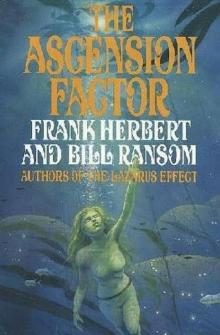 The Ascension Factor
The Ascension Factor The Heaven Makers
The Heaven Makers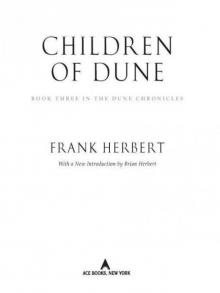 Children of Dune
Children of Dune Old Rambling House
Old Rambling House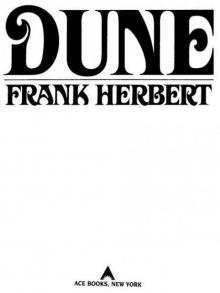 Dune
Dune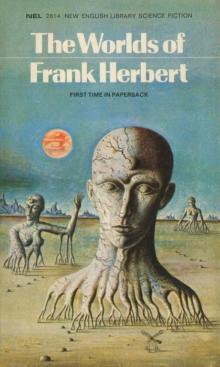 The Worlds of Frank Herbert
The Worlds of Frank Herbert The Jesus Incident
The Jesus Incident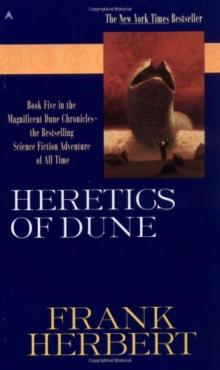 Heretics of Dune
Heretics of Dune Whipping Star
Whipping Star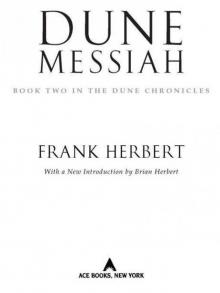 Dune Messiah
Dune Messiah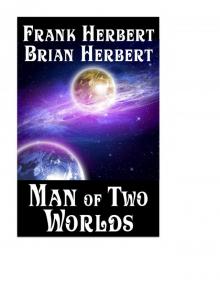 Man of Two Worlds
Man of Two Worlds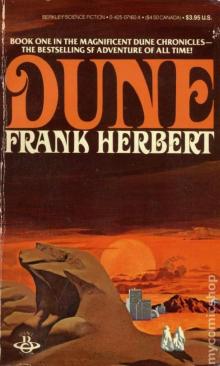 The Book of Frank Herbert
The Book of Frank Herbert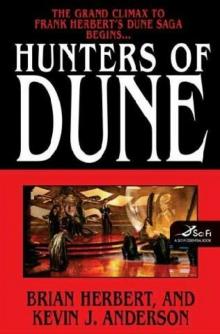 Hunters Of Dune
Hunters Of Dune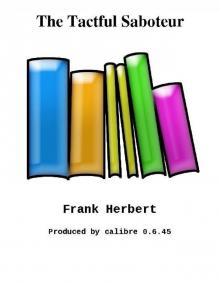 The Tactful Saboteur
The Tactful Saboteur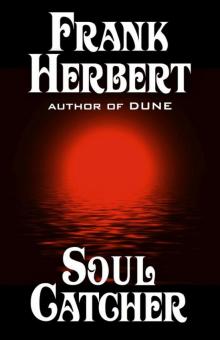 Soul Catcher
Soul Catcher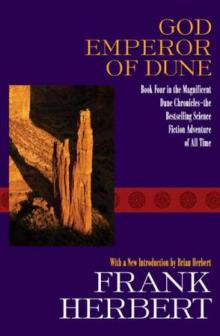 God Emperor of Dune
God Emperor of Dune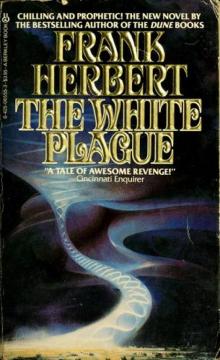 The White Plague
The White Plague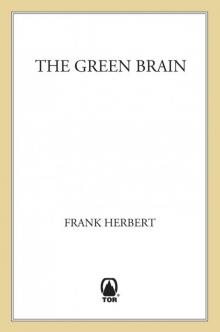 The Green Brain
The Green Brain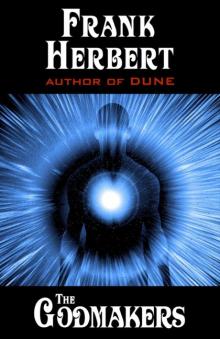 The Godmakers
The Godmakers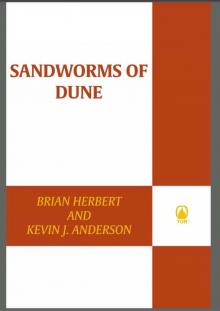 Sandworms of Dune
Sandworms of Dune Destination Void
Destination Void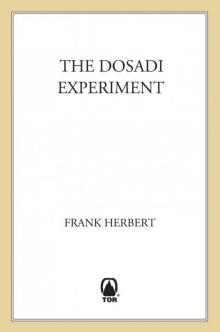 The Dosadi Experiment
The Dosadi Experiment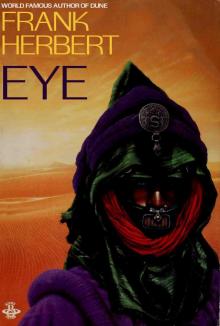 Eye
Eye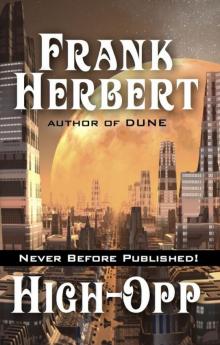 High-Opp
High-Opp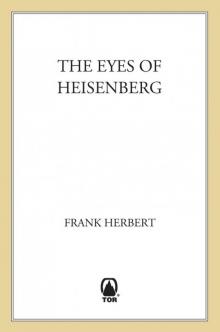 The Eyes of Heisenberg
The Eyes of Heisenberg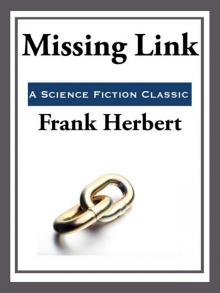 Missing Link
Missing Link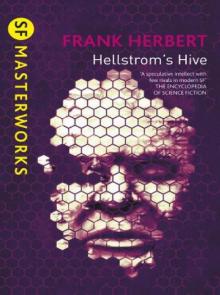 Hellstrom's Hive
Hellstrom's Hive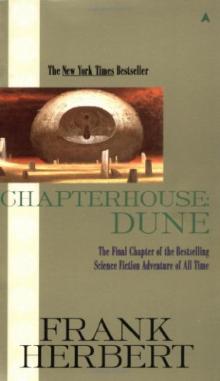 Chapterhouse: Dune
Chapterhouse: Dune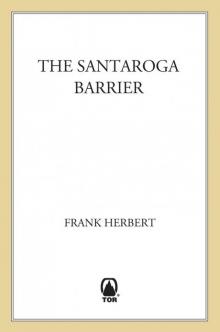 The Santaroga Barrier
The Santaroga Barrier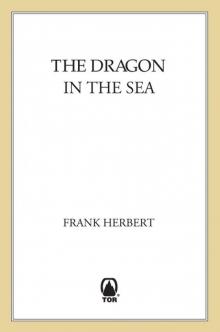 The Dragon in the Sea
The Dragon in the Sea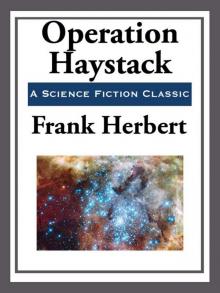 Operation Haystack
Operation Haystack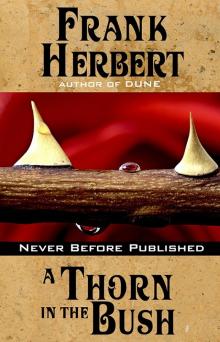 A Thorn in the Bush
A Thorn in the Bush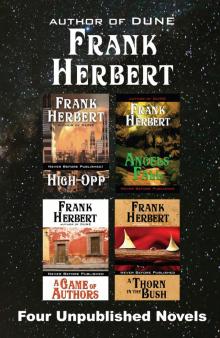 Four Unpublished Novels
Four Unpublished Novels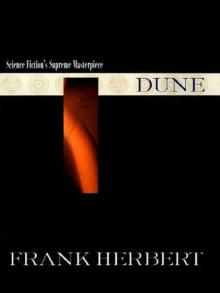 Dune dc-1
Dune dc-1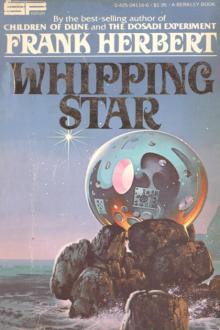 Jorj X. McKie 1 - Whipping Star
Jorj X. McKie 1 - Whipping Star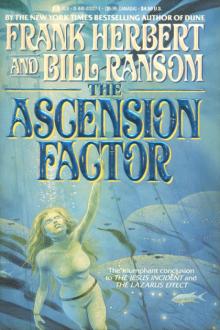 DV 4 - The Ascension Factor
DV 4 - The Ascension Factor Frank Herbert - Dune Book 4 - God Emperor Of Dune
Frank Herbert - Dune Book 4 - God Emperor Of Dune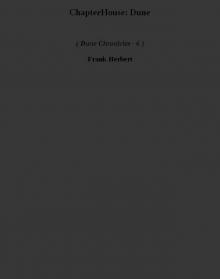 ChapterHouse: Dune dc-6
ChapterHouse: Dune dc-6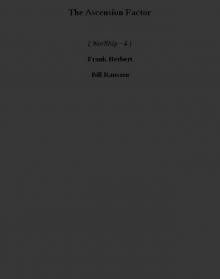 The Ascension Factor w-4
The Ascension Factor w-4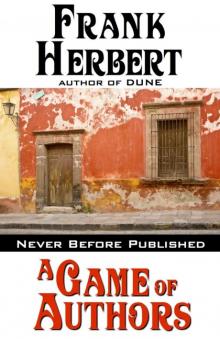 A Game of Authors
A Game of Authors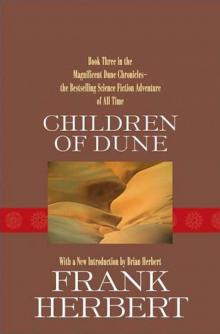 Children of Dune dc-3
Children of Dune dc-3 Destination: Void: Prequel to the Pandora Sequence
Destination: Void: Prequel to the Pandora Sequence The Collected Stories of Frank Herbert
The Collected Stories of Frank Herbert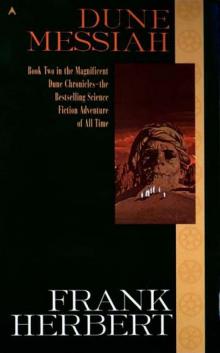 Dune Messiah dc-2
Dune Messiah dc-2 Frank Herbert - Dune Book 5 - Heretics of Dune
Frank Herbert - Dune Book 5 - Heretics of Dune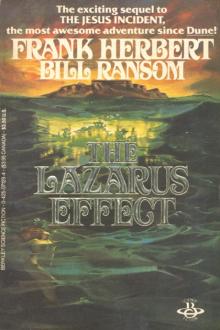 DV 3 - The Lazarus Effect
DV 3 - The Lazarus Effect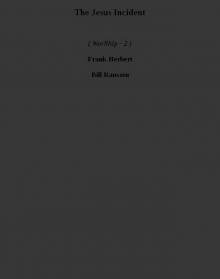 The Jesus Incident w-2
The Jesus Incident w-2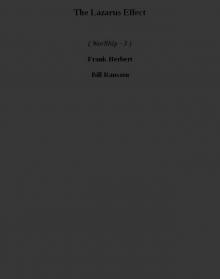 The Lazarus Effect w-3
The Lazarus Effect w-3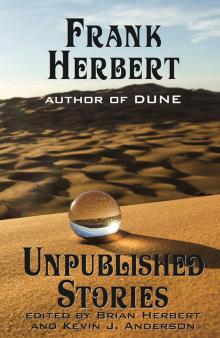 Frank Herbert
Frank Herbert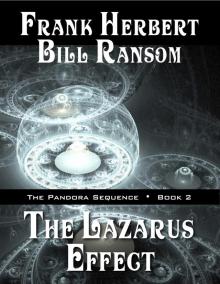 The Ascension Factor: Pandora Sequence
The Ascension Factor: Pandora Sequence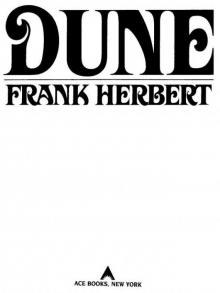 Dune (40th Anniversary Edition)
Dune (40th Anniversary Edition)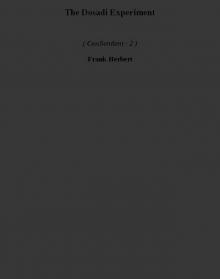 The Dosadi Experiment c-2
The Dosadi Experiment c-2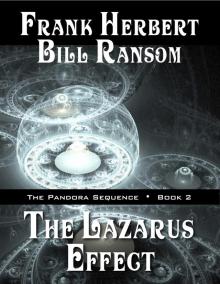 The Lazarus Effect
The Lazarus Effect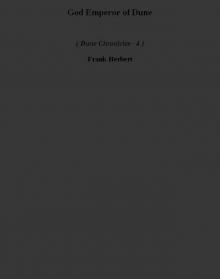 God Emperor of Dune dc-4
God Emperor of Dune dc-4 The Pandora Sequence: The Jesus Incident, the Lazarus Effect, the Ascension Factor
The Pandora Sequence: The Jesus Incident, the Lazarus Effect, the Ascension Factor The Green Brain (v4.0)
The Green Brain (v4.0) The Heaven Makers (v4.0)
The Heaven Makers (v4.0)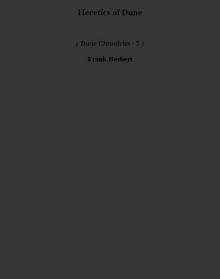 Heretics of Dune dc-5
Heretics of Dune dc-5